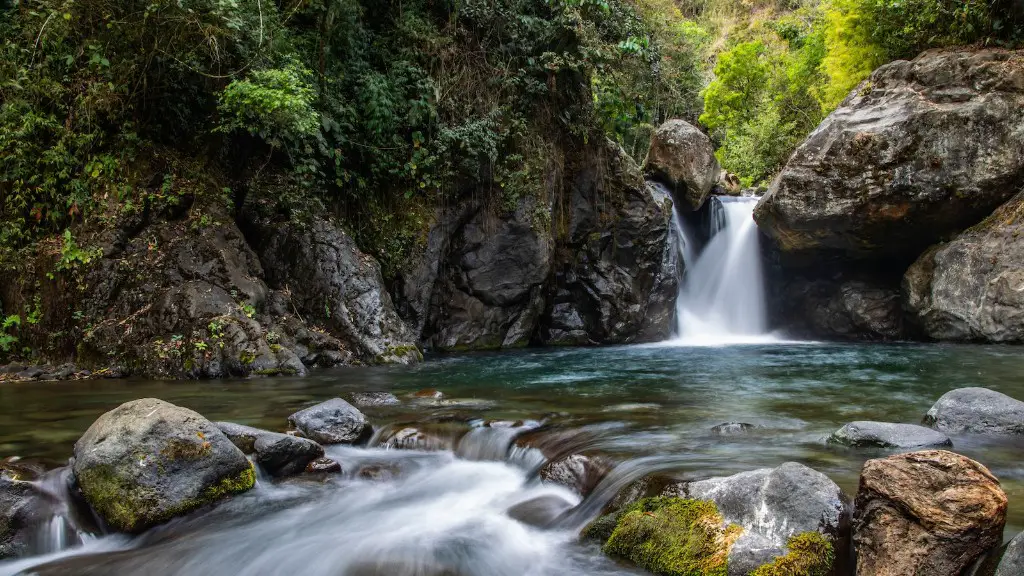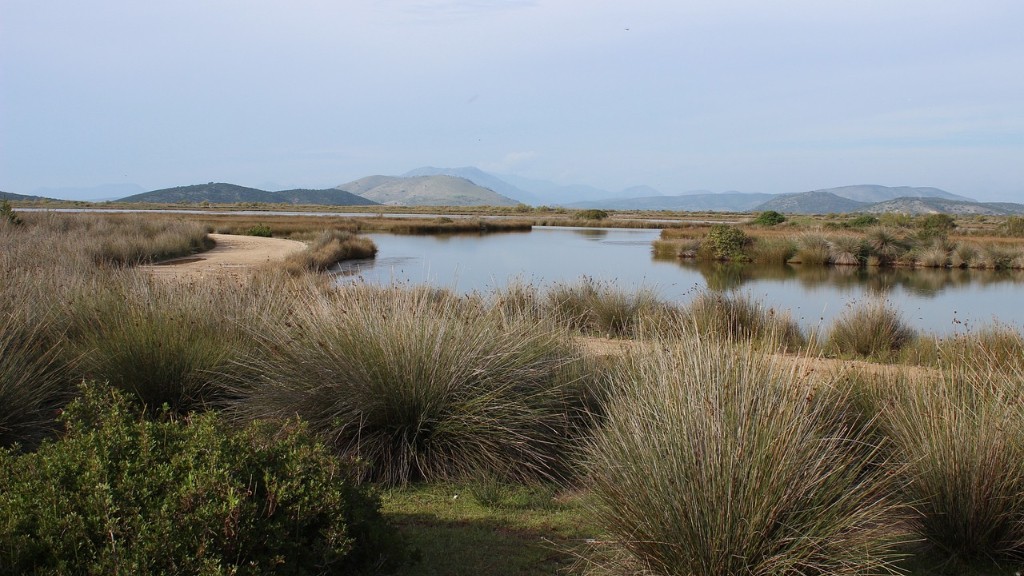Introduction
The Mississippi River is one of the largest rivers in North America, running from its source in northern Minnesota to its outlet in the Gulf of Mexico. The Mississippi River’s influence on the Gulf of Mexico is immense, affecting everything from water quality to ocean temperatures. The Gulf of Mexico receives the majority of its freshwater from the Mississippi River’s outflow, resulting in an increased influx of silt sediment and pollutants. The impact of the Mississippi River on the Gulf of Mexico has been studied extensively, and the effects of its flow are felt far beyond the shoreline.
Sources of Pollution
The Mississippi River is a major source of pollution in the Gulf of Mexico. The runoff from hundreds of engineering activities that take place along its path, as well as runoff from agricultural fields, is carried by the river as it makes its way to the Gulf. The river carries sediment, as well as nutrients and toxins, downstream to the Gulf of Mexico. The influx of this sediment, nutrients, and toxins causes the growth of harmful algal blooms, which can be detrimental to marine life.
Along its journey, the Mississippi River transports high concentrations of nitrogen and phosphorus, which are essential nutrients in aquatic ecosystems. However, when high concentrations of these two nutrients enter the Gulf of Mexico, they cause eutrophication, a process in which water becomes saturated with nutrients, leading to the overgrowth of algae. This can result in the depletion of oxygen in the water, causing hypoxia and ultimately the death of fish and other marine life.
Impact on Water Quality
The Mississippi River has a major impact on the water quality of the Gulf of Mexico. Since the river outlet is located in the Gulf, the influx of sediment, nutrients, and pollutants affects the water quality. One of the main concerns regarding water quality is the large quantities of nutrient pollution entering the Gulf. High concentrations of nitrogen and phosphorus can cause eutrophication and hypoxia, leading to the death of marine life. In addition, runoff from agricultural and industrial activities carries with it pollutants such as pesticides, herbicides, and fertilizers. These pollutants and excess nutrients can lead to algal blooms, which can choke out oxygen in the water and cause fish kills.
Effects on Ocean Temperatures
The Mississippi River also has an effect on ocean temperatures in the Gulf of Mexico. The freshwater that flows out of the river is much cooler than the warm, salty ocean water. This causes the water temperature to drop, resulting in colder ocean temperatures in the areas surrounding the river’s runoff. This can have a major impact on marine life, as many species depend on warmer water temperatures to thrive. The colder water temperatures can cause fish to migrate away from the area and can disrupt the food chain.
Impact on Ecosystem
The Mississippi River has a major impact on the Gulf of Mexico’s ecosystem. The influx of sediment, nutrients, and pollutants affects the entire food chain, causing a disruption in the balance of the ecosystem. The excess nutrients can lead to algal blooms, which can reduce the amount of oxygen to levels that are not safe for fish and other marine life. Additionally, the influx of freshwater affects the salt content of the water, resulting in changes in the concentration of salinity. The changes in salinity can make it more difficult for fish to find food and suitable habitats. The sediment and pollutants can also be harmful to sensitive species, such as sea turtles, corals, and shells.
Long Term Impact
The effects of the Mississippi River on the Gulf of Mexico can have long-term impacts on the ecosystem. The influx of freshwater can cause changes in ocean temperatures and salinity that can affect fish and other marine life in the area. In addition, the high concentrations of nutrients and pollutants can cause eutrophication and algal blooms, leading to the death of fish and other marine life. Lastly, the buildup of sediment can lead to the displacement of fish and other species and can disrupt the balance of the ecosystem.
Conservation Efforts
The Mississippi River contributes a significant amount of nutrient and sediment pollution to the Gulf of Mexico, but there are numerous conservation and management efforts that have been put in place. These include stricter regulations on the amount of pollutants and sediments that are allowed to enter the river, more efficient drainage systems for agricultural fields, and the regulation of industrial activities that take place along the river. Additionally, the U.S. Fish and Wildlife Service has taken steps to reduce the amount of sediment and nutrients being released into the Gulf by installing best management practices such as erosion control, wetland restoration, and buffer systems.
Role of Industries
Industries that operate along the Mississippi River have a major role to play in reducing the amount of pollution and sediment that is entering the Gulf of Mexico. Companies that operate within the watershed should implement stringent environmental policies and ensure that the runoff from their production processes is being treated properly and safely. Additionally, companies should educate their employees on the importance of conservation and ensure that the materials they use are not harmful to the environment.
Role of Citizens
Citizens can have an important role in helping reduce the amount of pollution and sediment that is entering the Gulf of Mexico. Individuals can help reduce the amount of nutrient and sediment runoff by reducing their use of fertilizers and pesticides, planting native vegetation, and reducing the amount of energy and water they use. Additionally, citizens can get involved in their communities by volunteering with local conservation organizations or attending meetings and speaking up about their concerns.
Effect of Dams on Water Flow
The construction of dams and reservoirs along the Mississippi River can have an effect on the flow of the river and the ultimate influx of water into the Gulf of Mexico. The construction of these dams and reservoirs can help reduce the amount of floodwaters entering the Gulf. However, certain dams can cause the flooding of wetlands, which can lead to increased nutrient levels in the water and the displacement of wildlife. Additionally, some dams can cause the water in the reservoir to become stagnant and can limit the flow of essential nutrients and oxygen to downstream areas.
Mitigating Impacts of Climate Change
Climate change has had a significant effect on the water levels and flow of the Mississippi River. As the global climate changes, there have been increases in floods and drought along the river. In order to ensure the health of the Gulf of Mexico, it is essential to mitigate the impacts of climate change on the river. Companies should be encouraged to implement strategies to reduce the amount of greenhouse gases emitted into the atmosphere and should invest in renewable energy sources. Additionally, governments should invest in green infrastructure, such as wetlands, and should promote sustainable agricultural practices.
Role of Government Agencies
Government agencies such as the U.S. Environmental Protection Agency (EPA) and the U.S. Army Corps of Engineers have a major role to play in ensuring the health of the Gulf of Mexico. These agencies work to monitor the quality of the water and ensure that the proper regulations are in place to protect the environment. They also work to develop and implement programs to reduce the amount of sediment and pollutants entering the Gulf and promote best management practices.
Conclusion
The Mississippi River is an important source of freshwater for the Gulf of Mexico and has an immense impact on the water quality and ocean temperatures in the area. The pollutants and sediment that enter the Gulf from the river can cause algal blooms, leading to the death of marine life, and can cause changes in ocean temperatures and salinity. In order to protect the environment, it is essential for industries, citizens, and governments to work together to reduce the amount of pollutants entering the Gulf and to mitigate the effects of climate change.



